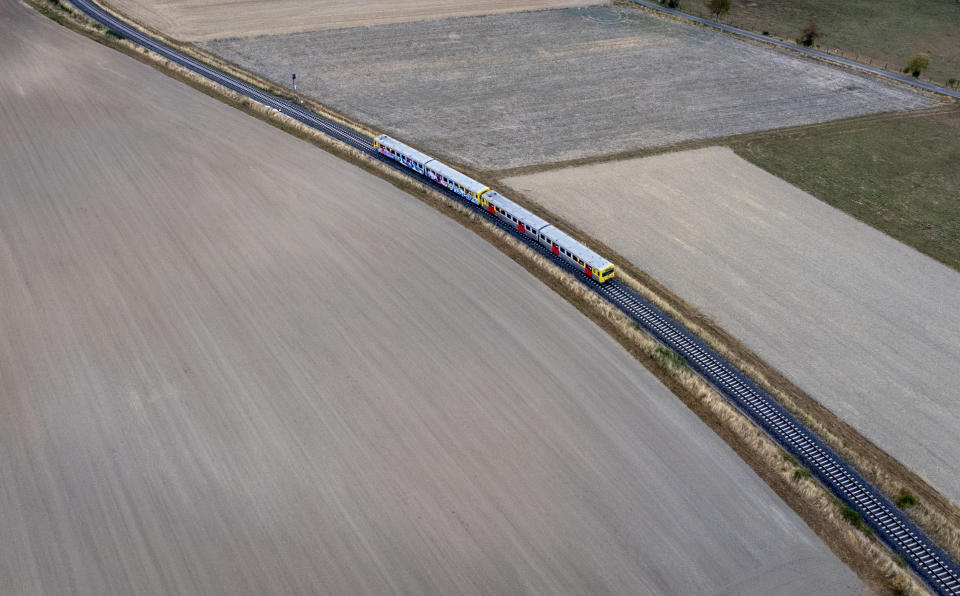German gasoline, transport prices jump as subsidies expire
BERLIN (AP) — Prices for gasoline and public transport in Germany surged Thursday as government subsidies expired, hurting commuters already struggling with high energy costs.
Germany's biggest auto club, ADAC, said initial estimates indicated that the average price of one liter of E10 super was about 0.25 euros ($0.25) higher in the morning than the previous day. Diesel fuel was about 0.10 euros ($0.10) more expensive, it said.
Thursday marked the end of a temporary cut in gasoline taxes and a special 9-euro ($9) monthly public transport ticket unveiled by the government in May to ease the pain of inflation.
The discount public transport ticket, usable on all local and regional buses and trains, was hailed as a particular success for allowing millions of people to travel the country cheaply, while saving an estimated 1.8 million metric tons of carbon dioxide emissions.
Environmental campaigners have called for the tickets to be extended in some form. Germany's transport minister says he is looking into the idea.
The government is trying to encourage consumers and businesses to save energy whichever way they can to prevent a shortage during the winter months, after Russia sharply reduced flows of natural gas to Germany. It recently announced that temperatures will be lowered in public offices this winter and the lighting on street advertising must be switched off at night.
Germany has pledged to wean itself off Russian gas within the next two years in response to Russia's attack on Ukraine. On Thursday, the government announced that it is leasing a fifth floating terminal for importing liquefied natural gas.


